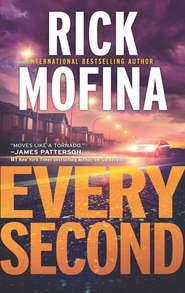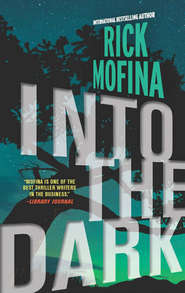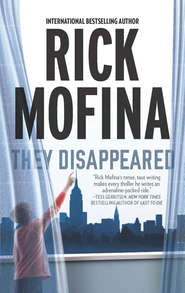По всем вопросам обращайтесь на: info@litportal.ru
(©) 2003-2024.
✖
Six Seconds
Автор
Год написания книги
2018
Настройки чтения
Размер шрифта
Высота строк
Поля
The agency needed more money to continue searching.
Maggie couldn’t afford it.
There was just enough left in their savings for her to keep things going with the house for another three, maybe four months. Then she’d have to sell. She’d been cutting corners. She still had her bookstore job, but things were getting desperate.
So Maggie held off paying the agency more money. She searched on her own, spending most nights on her computer. She contacted truckers’ groups and missing kids organizations, pleaded her case to newsletters and blogs. She scoured news sites for crashes involving rigs and boys Logan’s age.
With each new tragedy Maggie’s stomach knotted.
Maggie attended support groups. They told her to get the press interested in her struggle to find Jake and Logan. Every few days, then every week, she worked her list: the Los Angeles Times, the Orange CountyRegister, the Riverside Press-Enterprise and nearly every TV and radio station in the southland.
“Oh, yeah, we looked into it,” one apple-crunching producer told Maggie after she’d left three messages. “Our sources say that while it’s classified as a parental abduction, it’s more of a civil domestic thing. Sorry.”
Every newsperson had stopped taking her calls, except Stacy Kurtz, the Star-Journal’s crime reporter.
“I don’t think we’ve got a story yet, but please keep me posted,” she said each time Maggie called.
At least Stacy would listen. Maggie had never met her but sometimes her picture ran with her articles. Stacy wore dark-framed glasses, hoop earrings and a smile that her job was slowly hardening. Daily reporting of the latest shooting, fire, drowning, car crash or variant urban tragedy was taking something from her. Some days, she looked older than she was.
“I can’t guarantee we’ll do a story, but I’ll listen to your case as long as you promise to keep me posted on any developments.” Stacy’s to-the-point manner placed a premium on her time in a business ruled by deadlines.
For Maggie, time was evaporating.
What if she never found Logan? Never saw himagain?
Now, here she was standing before the Star-Journal, a paper that covered Blue Rose Creek from a forlorn one-story building on a four-lane boulevard.
It sat between Sid’s Check Cashing and Fillipo’s Menswear, looking more like a 1960s strip-mall castaway than the kick-ass rag it once was. A palm tree drooped above the entrance. Weak breezes tried to stir a tattered U.S. flag atop the roof, where a rattling air conditioner bled rusty water down the building’s stucco walls.
To locals, the Star-Journal was an eyesore in need of last rites.
To Maggie, it was a last chance to find Logan, for, day by day, her hope faded like the flag over the Star-Journal. But she’d come here this morning, all the same, with nothing but a prayer.
“May I help you?” a big woman in a print dress asked from her desk, which was the one closest to the counter. The other desks were nearby, situated in the classic newsroom layout. About a dozen cluttered desks crammed together. Most were unoccupied. At others, grim-faced people concentrated on their computer screens, or telephone conversations.
The off-white walls were papered with maps, front pages, news photos and an assortment of headlines. A police scanner was squawking from one corner where three TVs were locked on news channels. At the far end, in a glass-walled office, a balding man with his tie loosened was arguing with a younger man who had a camera slung over his shoulder.
“I’m here to see Stacy Kurtz,” said Maggie.
“Do you have an appointment?”
“No, but—”
“Name?”
“My name is Maggie Conlin.”
“Maggie Conlin?” the big woman repeated before shooting a glance at the woman nearby with a phone wedged between her ear and shoulder.
“No, that is absolutely wrong,” the woman said into the phone as she typed, glancing at Maggie at the counter. She held up her index finger, going back into her phone call. “No, it is absolutely not what your press guy told me at the scene. Good. Tell Detective Wychesski to call me on my cell. That’s right. Stacy Kurtz at the Star-Journal. If he doesn’t call, I’ll consider his silence as confirmation.”
After typing for another moment Stacy Kurtz, who looked little like her picture, approached the counter.
“Stace, this is Maggie Conlin,” the big woman said. “She doesn’t have an appointment but she wants to talk to you.”
Stacy Kurtz extended her hand. “I’m sorry, your name’s familiar.”
“My husband disappeared with my son several months ago.”
“Right. A weird parental abduction, wasn’t it? Is there a development?”
“No. My husband—” Maggie twisted the straps of her bag. “Could we talk, privately?”
Stacy appraised Maggie, trying to determine if she was worth her time. She turned toward the glass-walled office where the balding man was still arguing with the younger man. She bit her bottom lip.
“I just need to talk to you,” Maggie said. “Please.”
“I can give you twenty minutes.”
“Thank you.”
“Della, tell Perry I’m going to step outside to grab a coffee.”
“Got your cell?”
“Yes.”
“Is it on?”
“Yessss.”
“Charged?”
“Bye, Della.”
* * *
A few moments later, half a block away on a park bench, Stacy Kurtz sipped latte from a paper cup and tapped a closed notebook against her lap. As Maggie poured out her anguish, seagulls shrieked overhead.
“So there’s really nothing new though, is there, Maggie? I mean not since it all happened, right?”
“No, but I was hoping that now, after all this time, you would do a story.”
“Maggie, I don’t think so.”
“Please. You could publish their pictures and put it on the wire services and then it would go all over and—”
“Maggie, I’m sorry we’re not going to do a story.”











